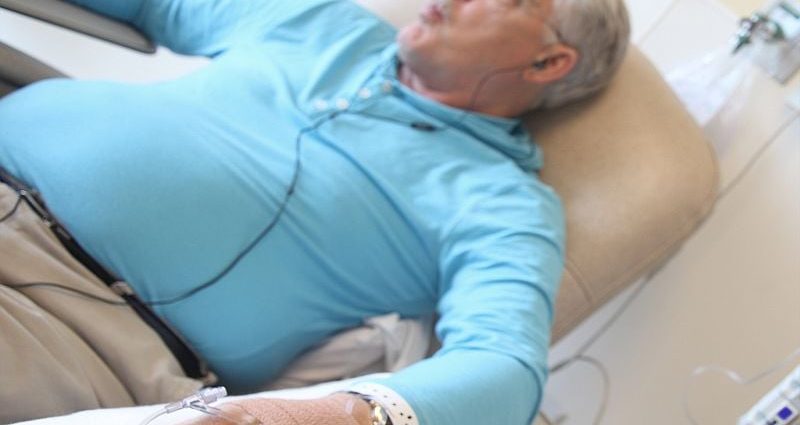-
Immunotherapy can improve outcomes in patients undergoing surgery for soft-tissue sarcoma
-
Immunotherapy and radiation therapy prior to surgery led to 90% of patients having nearly all cancer cleared from their bodies
-
Overall five-year survival rates were 90% and 82% for two common forms of soft-tissue sarcoma
THURSDAY, Feb. 15, 2024 (HealthDay News) — Patients with soft-tissue sarcoma had better surgical outcomes if they received immunotherapy and radiation therapy prior to their procedure, a new clinical trial reports.
Soft-tissue sarcoma is a cancer that develops in soft tissues like fat, muscle, nerves, fibrous tissues and blood vessels.
More than 90% of patients with a form of soft-tissue sarcoma called undifferentiated pleomorphic sarcoma (UPS) had less than 15% viable tumor cells remaining after they received immunotherapy and radiation therapy followed by surgery, researchers said.
Further, the overall survival rate at two years after first treatment was 90% in UPS and 82% in another form called resectable retroperitoneal dedifferentiated liposarcoma (DDLPS).
“These results demonstrate the role immunotherapy treatment can have on soft-tissue sarcomas and how the neoadjuvant treatment platform can help identify novel treatment options for patients,” said researcher Dr. Christina Roland, an associate professor of surgical oncology at the University of Texas MD Anderson Cancer Center.
“Sarcoma patients have limited systemic therapy options to consider, and this trial offers data to support the use of immunotherapy in their treatment,” she added in a university news release.
About 13,000 new cases of soft-tissue sarcoma are diagnosed each year in the United States, and DDLPS and UPS are two of the most common types, researchers said in background notes.
Currently, surgery is the only potential cure for many patients with soft-tissue sarcoma, but the cancer often comes back within five years.
This is the first study to look at combining immunotherapy and radiation therapy prior to surgery to improve the odds of completely clearing out the cancer, researchers said.
In the clinical trial, 17 patients with DDLPS and 10 patients with UPS received either nivolumab or nivolumab combined with ipilimumab.
Nivolumab and ipilimumab both block the ability of cancer cells to evade detection by the immune system, allowing killer immune cells to attack the tumor.
Samples taken from tumors revealed that the presence of immune “B” cells inside the cancers was associated with patients’ improved overall survival. B cells churn out antibodies that attack foreign particles in the human body.
“We know from previous research the importance of the presence of B cells in a tumor to predict immunotherapy responses, and we found in this study that patients with higher levels of B cells in their tumors were more likely to respond,” said researcher Dr. Neeta Somaiah, an associate professor of sarcoma medical oncology at MD Anderson.
The immunotherapy provided this benefit without increasing the risk of surgery complications, and no new side effects were identified, researchers said.
The most common side effects from the immunotherapy were rash, fatigue and diarrhea.
The findings were published Feb.13 in the journal Nature Cancer.
More information
The American Cancer Society has more about soft-tissue sarcoma.
SOURCE: University of Texas, news release, Feb. 12, 2024
Copyright © 2026 HealthDay. All rights reserved.

